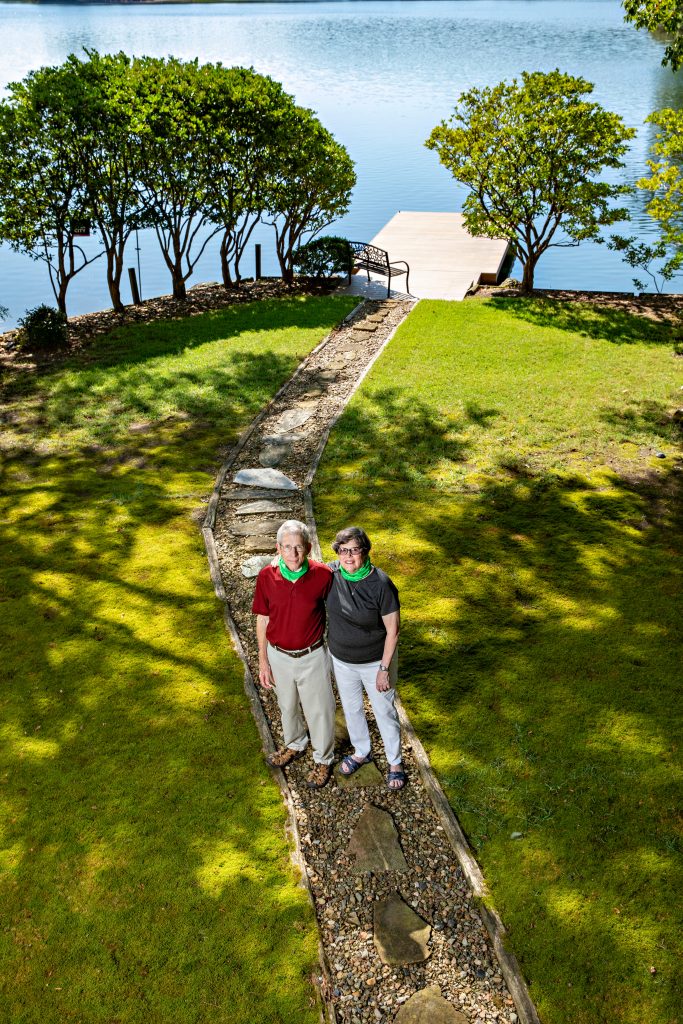The Community Foundation is a statewide nonprofit organization that offers tools to help Arkansans protect, grow, and direct charitable dollars while learning more about community needs. Arkansas Community Foundation engages people, connects resources, and inspires solutions to build community. You understand your clients’ charitable goals. We understand smart giving. Partnering with the Community Foundation, you stay in control of your client relationships while we provide the tools and resources to make the philanthropic process simple, flexible, and efficient. As Planned Giving Director, I am your primary point of contact.
As the holidays are upon us, giving is in the
forefront of many of your clients’ minds. As any nonprofit will tell you, it is
always a good time to give, but the pandemic has made now an especially needed
time for it. To
encourage that giving, Congress included a provision in the Coronavirus Aid, Relief,
and Economic Security (CARES) Act, P.L. 116-136, signed into law on March 27,
2020, to provide some relief for charitable organizations. The benefit
for you and your clients? Taxpayers might receive a bigger impact for their
charitable giving if they do it before the end of 2020.
- Clients who take the standard
deduction can claim a reduction
in adjusted gross income for charitable contributions up to
$300 per taxpayer filing unit (see below for qualifying information).
- Clients who itemize deductions can
elect to deduct donations up to 100% of their 2020 adjusted gross income
instead of being capped at 60% (see below for qualifying information). For
corporations, the CARES
Act increased the cap from 10% to 25%
of taxable income (see below for qualifying information).
- For many clients, the
waiver of the Required Minimum Distribution for 2020 could create an economic
incentive to redirect tax savings to charitable giving.
The Boundaries of Qualified Giving
A qualified charitable
contribution for purposes of Sec. 62(a)(22) is a charitable contribution (as
defined in Sec. 170(c) (Sec. 62(f)(2))) made in cash for
any charitable purpose—not just contributions to charities related to the
COVID-19 crisis—made directly to charitable organizations. Cash
contributions are any contributions paid with “cash, check, electronic fund
transfer, payroll deduction, etc.” (IRS Publication 526, Charitable
Contributions). A qualified charitable organization is any
organization that qualifies as a public charity under Sec. 170(b)(1)(A) (Sec.
62(f)(2)(C)(i)). The contribution cannot be made to a supporting organization
described in Sec. 509(a)(3), a family foundation, or to a donor-advised fund. At
the Arkansas Community Foundation, we can set up designated funds for
charitable giving that will qualify for the tax incentives.
$300 Above-the-Line Deduction
The U.S. wants to keep altruism
contributing to communities’ needs, so the CARES Act (Section 2104) permits eligible individuals who do not itemize
deductions to deduct $300 of qualified charitable contributions as an
“above-the-line” deduction, i.e., as an adjustment in determining adjusted
gross income (AGI), for tax years beginning in 2020. The deduction
reduces taxable income after the donor’s AGI has been calculated. Because it is
considered an above-the-line deduction, the IRS applies it when calculating
AGI. So, your client can donate up to $300 in cash to a qualified organization
and have his or her AGI reduced by up to $300 all while claiming the standard
deduction.
100% of AGI Deduction
The CARES Act included a provision
designed to encourage the nation’s wealthiest taxpayers to increase their
charitable giving during the COVID-19 pandemic. The Tax Cuts and Jobs Act
(TCJA) had capped the deduction for cash contributions to public charities at
60% of a taxpayer’s AGI, but the CARES Act raised that limit to public charities (other than those
mentioned above) to 100% for 2020. For many philanthropically inclined
individuals, the change provides
an incentive to maximize qualifying charitable giving during this crisis year.
Charitable contributions of more than 100% can be carried forward for five
years subject to the 60% of AGI limit in those years.
Also, the limit on charitable
deductions for corporations has increased. Under the CARES Act, a corporation’s
qualifying contributions, reduced by other contributions, can be as much as 25%
of taxable income (previously 10% of modified taxable income).
Required Minimum Distribution Option
The CARES Act did not change the rules around the qualified
charitable distribution (QCD), which allows individuals over 70½ years old to
donate up to $100,000 in IRA assets directly to charity annually, without
taking the distribution into taxable income. However, under the CARES Act, an
individual can elect to deduct 100% of their AGI for cash charitable contributions.
This allows individuals over 59½ years old the benefits similar to a QCD—they
can take a cash distribution from their IRA, contribute the cash to charity
(through a fund with the Arkansas Community Foundation, for example), and may
completely offset tax attributable to the distribution by taking a charitable
deduction in an amount up to 100% of their AGI for the tax year. If your
clients are planning a large donation in 2020, this may be a smart strategy if
they are between the ages of 59½ and 70½ and are not dependent on existing
retirement funds.
Year-end giving is always important, but there is a true need to help our communities during the pandemic. Nonprofits play a critical role addressing needs, so the government has incentivized taxpayers to help meet the growing need. Funds created at the Arkansas Community Foundation are designed to improve our communities and provide tax benefits for the donor. We are available to discuss the opportunities and the needs for you and your clients.
As always, Arkansas Community Foundation can help you develop your clients’ charitable giving plans to maximize impact and tax savings. Contact us at 501-372-1116.













